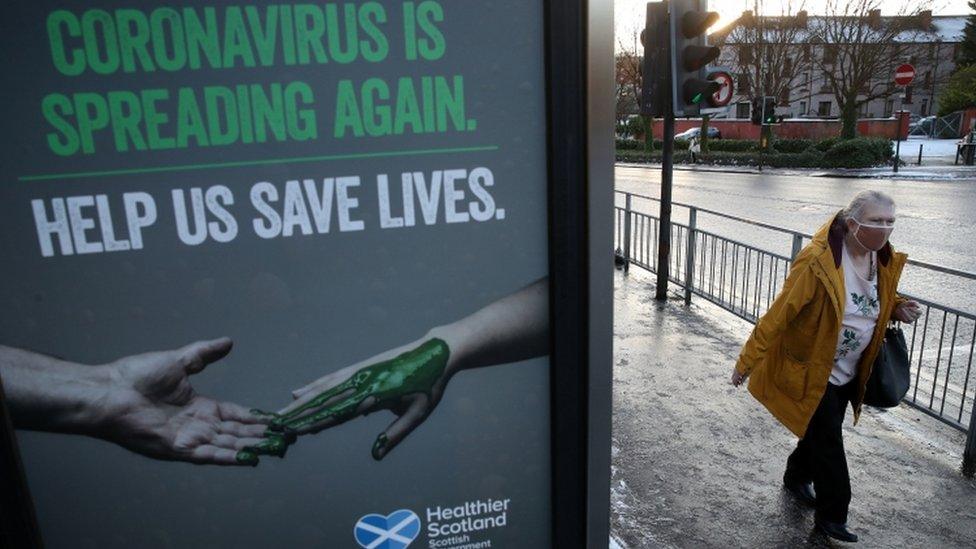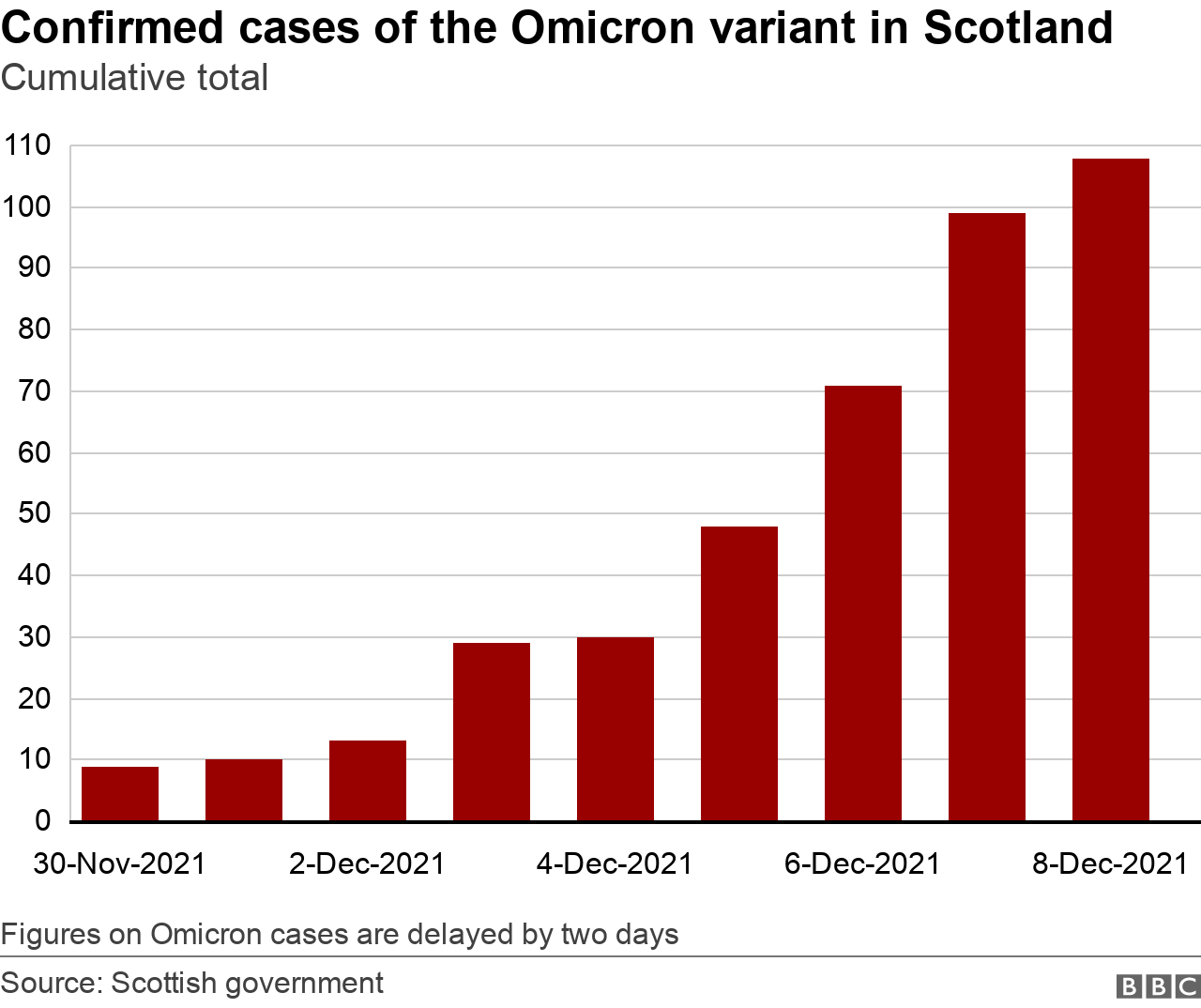Covid in Scotland: More rules could come next week, says Swinney
- Published
John Swinney: Scottish government assessing whether further Covid measures are needed
New Covid restrictions could be introduced in Scotland next week, the deputy first minister has warned.
John Swinney says the Scottish government is "wrestling with the challenge" of the surge of the Omicron variant.
New self-isolation rules have come into force as Scotland recorded 4,087 new Covid cases on Saturday.
All household contacts of someone with the virus should now isolate for 10 days, regardless of vaccination status.
The new isolation rules also apply to household contacts even if they initially get a negative PCR test.
Non-household contacts of someone with Covid are permitted to leave isolation if they have had a negative PCR test and two vaccine doses.
Scientists are warning that the UK is facing a substantial wave of Omicron infections in January without further restrictions.
In an interview with BBC Breakfast, the deputy first minister said the Scottish government would spend the weekend deciding what to do next.

All household contacts of someone with the virus should now isolate for 10 days
Mr Swinney said: "We are looking at whether we need to take further measures to try to arrest the circulation of the virus. We had a huge rise in cases yesterday and that suggests we have an escalating problem.
"The government is wrestling with the challenge of what are the right rules to have in place over this weekend. We will share details of any changes with parliament over the next few days."
Mr Swinney said there was a danger of the virus overwhelming public and private services, but said he hoped a restricted Christmas would not happen.
He said the Scottish government was "working very hard" to avoid this by asking the public to reduce social interaction and take lateral flow tests.
"We are encouraging people to take these steps so that we can protect the precious time that is Christmas time for families," he added.
"We know how hard that was last year and we want to avoid a repeat of that."

On Saturday the total number of Omicron cases across nine of the Scotland's 14 health boards reached 121.
There were 4,087 new cases of the virus, a rise on the recent daily average of about 2,800 cases.
Public Health Scotland (PHS) said there was a delay in test results being reported, so the actual figures will be higher.
A further 12 deaths were also confirmed following a positive test. The number of people in hospital fell slightly to 552, with 53 patients in intensive care.
First Minister Nicola Sturgeon said that the current numbers were only the "tip of the iceberg" with cases doubling every two to three days - the fastest growth seen during the whole pandemic.
She warned a media briefing this week that there was an oncoming "tsunami" of Omicron cases.
PHS has urged people to cancel Christmas parties, in a move that hospitality venues said triggered "non-stop cancellations".
Ms Sturgeon said there was a focus on these events, as the new variant posed a big risk to workplaces.
The Scottish Chambers of Commerce said financial compensation should be made available to affected businesses.
Professor Linda Bauld said festive restrictions are "a possibility"
University of Edinburgh public health expert Prof Linda Bauld said she hoped this Christmas would not be a repeat of last year.
Speaking to the BBC Radio Scotland's Good Morning Scotland, she also said more restrictions could come next week.
Prof Bauld said: "Everybody wants to avoid shutting businesses again and that would be the last resort, but clearly across the country, decision-makers have to look at the menu of options and decide what is proportionate."
She said lockdown was a last resort, but people may be asked to cut back on socialising plans.
But she added: "Isolation, loneliness and separation from loved ones is something we also want to avoid."
Santa express cancelled
Meanwhile, ward 7a at Raigmore Hospital in Inverness has been closed to new admissions after a Covid outbreak. Visiting has also been stopped.
NHS bosses said it was not connected to an outbreak on ward 5a of the same hospital last week.
Testing will establish if it is the Omicron variant that has closed the wards.
Rising case numbers are also putting pressure on other areas. ScotRail has already cancelled 60 train services due to staff shortages as a result of Covid.
The operator also dropped their festive Santa Express trips on the Fife Circle line this weekend.
Scientists warned on Friday that two doses of a Covid vaccine are not enough to stop people catching the Omicron variant - although a third booster dose significantly increases protection to around 75%.
Vaccines are still likely to offer good protection against severe Covid that would need hospital treatment.


Do you have a question about what Scotland's Covid restrictions mean for your Christmas plans? Use the form below to send it to us and we could be in touch.
In some cases your question will be published, displaying your name, age and location as you provide it, unless you state otherwise. Your contact details will never be published. Please ensure you have read the terms and conditions.
If you are reading this page on the BBC News app, you will need to visit the mobile version of the BBC website to submit your question on this topic.